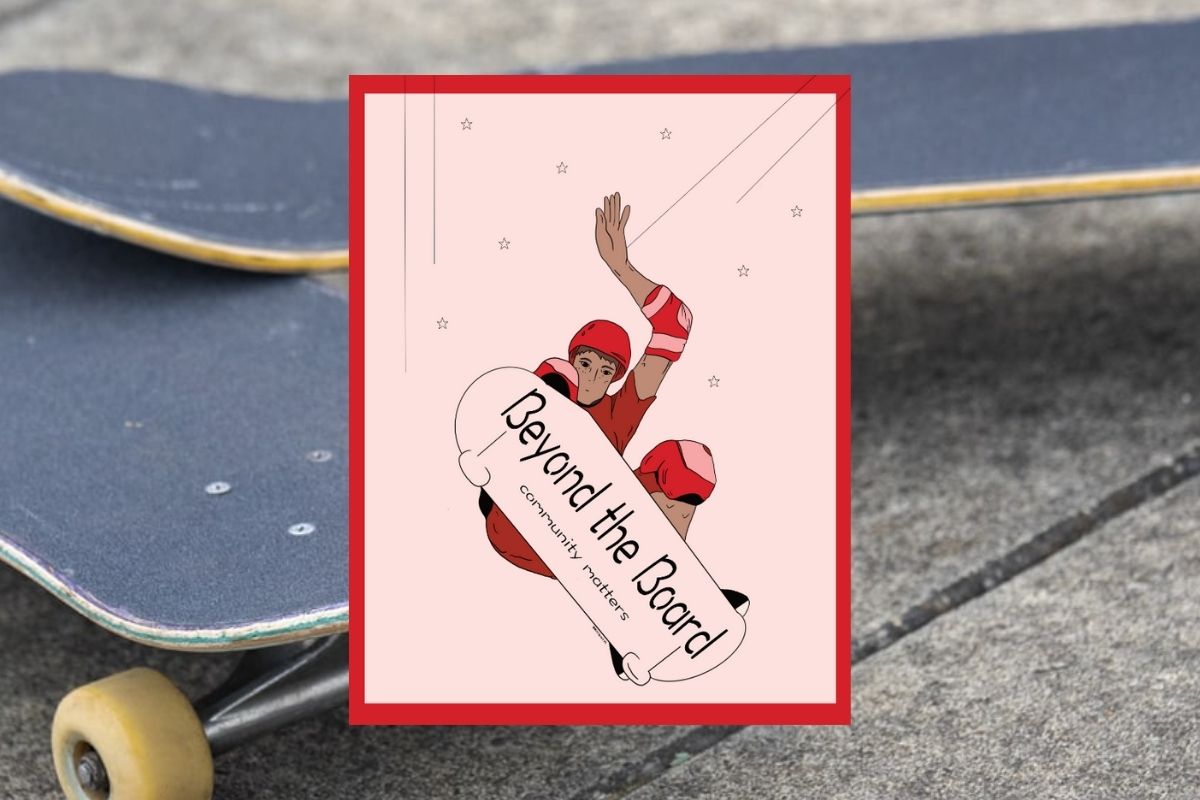
Research Team Takes Innovative Approach to Reaching Skateboarding Community
A team of Pullias Center researchers is taking a grassroots strategy to spread the findings of an important study on skateboarding culture with Beyond the Board: A Zine about Community Matters.
Earlier this year, the Pullias Center for Higher Education at USC’s Rossier School of Education and USC’s Annenberg School for Communication and Journalism partnered to conduct a first-of-its-kind study on skateboarding culture. The study was funded by The Skatepark Project, formerly known as the Tony Hawk Foundation, and highlights the connections among skateboarding, education, and career. While key findings of the study are available in detailed reports in a format familiar to fellow researchers and higher education scholars, the research team was committed to finding other ways to share their research findings, especially with skateboarders themselves.
“The study was getting a considerable amount of coverage in the mainstream media,” recalls the Pullias Center’s Dr. Zoë Corwin, the study’s principal investigator, referring to media coverage that included the Los Angeles Times and the New York Times. “But it was an unsolicited video summary of our research made by YouTuber and Skateboarder George Poulos that really captured our imaginations.”
“We are committed to sharing research findings with diverse audiences – and recognize that to do so, we need to be innovative,” adds Dr. Neftalie Williams of USC’s Annenberg School for Communication and Journalism, a scholar in race, skateboarding culture and skate diplomacy who served as a researcher and co-author on the project. As one example, Corwin and Williams recently joined Henry Jenkins and Colin Maclay in their podcast “How Do you Like it So Far” where they discussed how contrary to stereotypes about skateboarders, skateboarding strengthens mental health and builds a sense of community that can transcend race and gender. “Our research has the potential to make an impact on the skate community and we wanted our findings to be easily digestible,” Williams reflects, “we feel it’s important to engage young people in ways that resonate with them. Most recently, we decided to experiment with ‘Zines,’ one of the earliest forms of social media for skateboarding culture, in order to get the word out. Zines are created by skaters for skaters– and are super aligned with skateboarding’s roots.”
Enter Brittany Min, a graduating senior from the USC Thornton School of Music. She’s been designing event posters, merchandise, and social/art assets as a freelancer since 2017. The researchers, thanks to funding from the USC Undergraduate Research Associates Program, turned to her to produce a zine–a short magazine–that illustrates the findings in a creative and artistic way.
“As a visual artist, I want whatever I create to tell a story. After connecting with Dr. Corwin and reading through the study, I was fascinated by the research that could ultimately shift stereotypes about the skate community. Throughout my process of designing the zine, I wanted the images to represent a day in the life of a skateboarder, whether that means socializing with friends or keeping up with academic responsibilities,” shares Min.
Beyond the Board: A Zine about Community Matters distills key research findings into an artistic presentation that definitely feels more like a magazine than an institutional report. It includes an overview of the study and a synopsis of the team’s findings about how skaters’ view community, including selected quotes from the thousands of participants across the country who took the survey.
“Skateboarding culture has always had a grassroots component to it, so it feels right to use a grassroots approach like distributing a zine to reach that community,” concluded Corwin, who recently kicked off a new skateboarding study with Williams and an interdisciplinary group of colleagues designed to learn how skateboarders from racially minoritized backgrounds take care of their mental health and sustain community amid the Covid-19 pandemic.
Further information about the skateboarding culture study, including the latest report and a previously issued white paper highlighting early findings from the first wave of the study, can be found on the Pullias Center website.